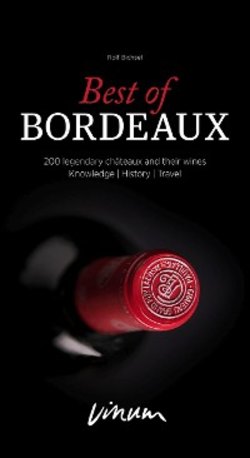Читать книгу Best of Bordeaux - Rolf Bichsel - Страница 31
Оглавление31
Trade triangle History
which barrels could be rolled directly onto cargo ships – had already become a
traditional winemaking district and remained so until the 1980s. Bordeaux grew
quickly and was soon bursting at the seams, becoming the third-largest city in
France (behind Paris and Lyon), and was able to afford one of the 18th century's
most beautiful (and today one of the best maintained) collections of buildings.
For centuries Bordeaux survived skirmishes and military campaigns un-
scathed or with little damage. Its strategic location was too important, the in
fl
u-
ence of its residents was too great, and too much money was at stake, so Bor-
deaux was forgiven any transgression. During the ‘Fronde' from 1748, Bordeaux
was a sponsor and bastion of this uprising against the power-hungry holder of
the increasingly absolutist French crown. The city's surrender on 3 August 1653
brought an o
ffi
cial end to the protest movement. Despite a few punishments,
such as Bernard de la Nogaret de la Vallette, Duc d'Epernon and owner of Beych-
evelle (who had remained loyal to the government) razing the chateau belong-
ing to agitator Blaise de Suduirault to the ground (although it is still not entirely
clear whether this was to settle a private or a political score) – Bordeaux's mer-
chant nobility remained virtually unscathed, and happily continued making
wine and enjoying its extravagant lifestyle. During the French Revolution, the
parliamentarians once again backed the wrong horse (although who really man-
aged to pick the right one in the bloody confusion?), were declared enemies of
the young nation and made the acquaintance of Madame la Guillotine. There
were many other executions in Bordeaux, and anyone wanting to escape the
sca
ff
old was forced to leave their land and allow it to be con
fi
scated, with nu-
merous estates being put up for auction. However, from a modern pragmatic
perspective, the Revolution was just a turning point that brought an influx of
new blood and capital, as many estates were acquired by different aristocratic
families during the Restoration. In the years after the Congress of Vienna, a large
number of citizens quickly came into money, began by acquiring a patent of no-
bility (sold in bulk by the reinstated French crown which was constantly short
of money), and as the crowning glory of their career and a symbol of power and
success, they acquired a real chateau, surrounded by vines of course. (Nouveau
riche) bankers or businessmen then replaced Bordeaux's old moneyed aristoc-
racy who had ruled the winemaking roost in the 17th and 18th centuries, and as
merchants, notaries, doctors or tradesmen were constantly forced to buy a seat
in the city parliament, rather than inheriting it from a father or uncle. This was
almost as essential for a first-class Bordeaux citizen as a service pistol once was
to a Swiss who wanted to join the ranks of high society.
